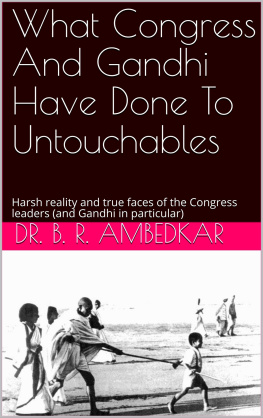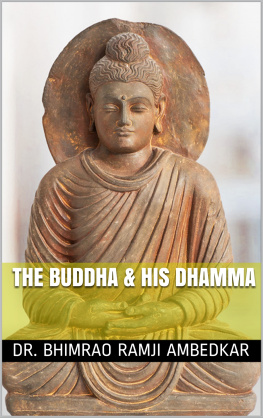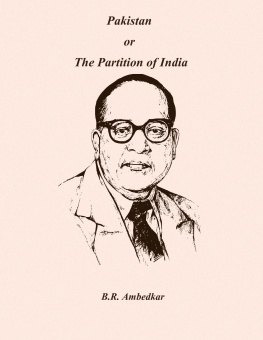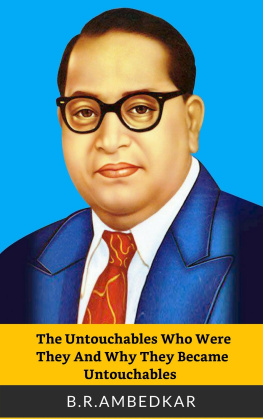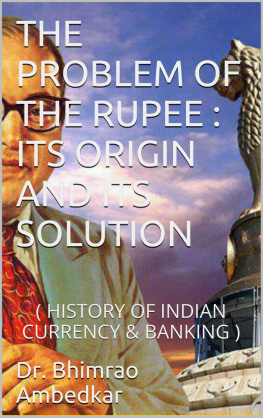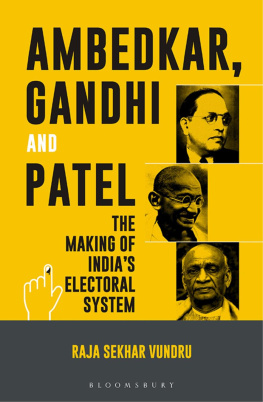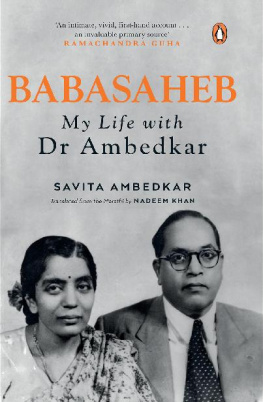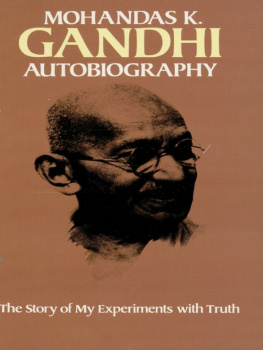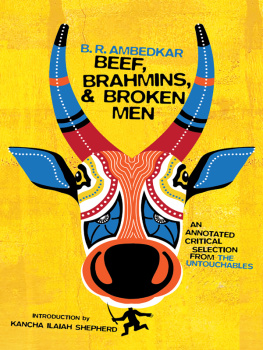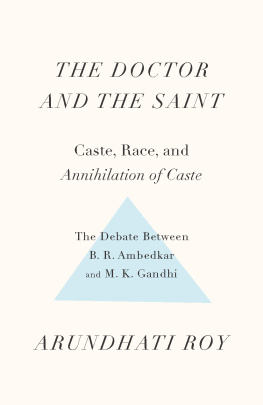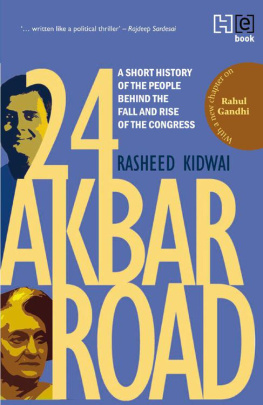WHAT CONGRESS AND GANDHI HAVE DONE
TO
THE UNTOUCHABLES
- Dr.B.R. Ambedkar
____________________________________________________________
" lt may be your interest to be our masters, but how can it be ours to be your slaves ? "
THUCYDIDES.
______________________________________________________________
Contents
PREFACE
Chapter I : A strange event
Chapter II : A shabby show congress abandons its plan
Chapter III : A mean deal congress refuses to part with power
Chapter IV : An abject surrender congress bets an inglorious retreat
Chapter V : A political charity congress plan to kill by kindness
Chapter VI : A false claim does congress represent all ?
Chapter VII : A false charge are untouchables tools of the British ?
Chapter VIII : The real issue what the untouchables want
Chapter IX : A plea to the foreigners let not tyranny have freedom to enslave
Chapter X : What do the untouchables say? Beware of Mr. Gandhi!
Chapter XI : Gandhism the doom of the untouchables
APPENDICES
WHAT CONGRESS AND GANDHI
HAVE DONE TO
THE UNTOUCHABLES
Dedication
(11) And Naomi said, Turn again, my Daughters; why will ye go with me ? (12) go your way... (14) And they lifted up their voice, and weft again, and Orpah kissed her mother-in-law; but Ruth clave unto her, (15) And she said. Behold thy sister-in-law is gone back unto her people, and unto her gods ; return thou after thy sister-in-law. (16) And Ruth said. Intreat me not to leave them; or to return from following after thee ; for whither thou goest, I will go; and where thou lodgest, I will lodge ; thy people shall be my people, and thy God my God. (17) Where thou diest, will I die, and there will be buried; the LORD do so to me, and more also, if ought but death part thee and me"
I know how, when we used to read the Bible together, you would be affected by the sweetness and pathos of this passage. While you will be glad to read it again you will, I am sure, ask me what made me recall it in this connection. I wonder if you remember the occasion when we fell into discussion about the value of Ruth's statement "Thy people shall be my people, and thy God my God." I have a clear memory of it and can well recall our difference of opinion, You maintained that its value lay in giving expression to the true sentiments appropriate to a perfect wife. I put forth the view that the passage had a sociological value and its true interpretation was the one given by Prof. Smith, namely, that it helped to distinguish modern society from ancient society. Ruth's statement " Thy people shall be my people and thy God my God" defined ancient society by its most dominant characteristic namely that it was a society of man plus God while modern society is a society of men only (pray remember that in men I include women also). My view was not then acceptable to you. But you were interested enough to urge me to write a book on this theme. I promised to do so. For as an oriental I belong to a society which is still ancient and in which God is a much more important member than man is. The part of the conversation which is important to me at this stage is the promise I then made to dedicate the book to you if I succeeded in writing one. Prof. Smith's interpretation had opened a new vista before me and I had every hope of carrying out my intention. The chances of developing the theme in a book form are now very remote. As you know, I am drawn in the vortex of politics which leaves no time for literary pursuits. I do not know when I shall be out of it. The feeling of failure to fulfil my promise has haunted me ever since the war started. Equally distressing was the fear that you might pass away as a war casualty and not be there to receive if I were to have time to complete it. But the unexpected has happened. There you are, out of the throes of Death. Here is a book ready awaiting dedication. This happy conjunction of two such events has suggested to me the idea that rather than postpone it indefinitely I might redeem my word, by dedicating this book which I have succeeded in bringing to completion. Though different in theme it is not an unworthy substitute. Will you accept it ?
B. R. A.
To,
F.
In Thy Presence is the Fullness of Joy.
PREFACE
"In 1892, there took place in England a new election to Parliament, in which the Conservatives headed by Lord Salisbury lost and the Liberals headed by Mr. Gladstone won. The remarkable thing about this election was that notwithstanding the defeat of his party at the polls. Lord Salisburycontrary to Parliamentary conventionrefused to surrender his office to the leader of the Liberal Party. When Parliament assembled, the Queen delivered the usual gracious speech from the throne containing the legislative programme of Lord Salisbury's Government and the usual address to Her Majesty was moved from the Government side. Lord Salisbury's Government was an illegitimate Government. It was a challenge to the fundamental principle of the British Constitution, which recognised parliamentary Majority as the only title deed for a Party's right to form a Government. The Liberals took up the challenge and tabled an amendment to the address. The amendment sought to condemn Lord Salisbury's Government for its insistence on continuing in office, notwithstanding the fact that it had no majority behind it. The task of moving the amendment was entrusted to the late Lord (then Mr.) Asquith. In his speech in support of the amendment, Mr. Asquith used the now famous phrase" Causa finita est: Roma locuta est." (Rome has spoken and the dispute must end). The phrase was originally used by St. Augustine but in a different context. It Was used in the course of a religious controversy and had come to be used as a foundation for Papal Sovereignty. Mr. Asquith used it as a political maxim embodying the basic principle of Parliamentary Democracy. Today it is accepted as the fundamental principle on which Popular Government rests, namely, the Right of a Political Majority to Rule. It told instantaneously against Salisbury's Government and must tell against all parties who fail at the polls wherever Parliamentary Democracy is in operation.
I was reminded of this maxim when the results of the Elections to the Provincial Legislatures in India, which took place in February 1987 under the Government of India Act, 1985, were announced. Congressmen did not actually say "Causa finita eat : India locuta est." But so far as the parties, which had opposed the Congress in the Electiohs, were concerned, that is what the results of the Elections seemed, to proclaim. Having led the Untouchables against the Congress for. full five years in the Round Table Conference and in the Joint Parliamentary Committee, I could not pretend to be unaffected by the results of the Elections. To me the question was: Had the Untouchables gone over to the Congress ? Such a thing was to me unimaginable. For, I could not believe that the Untouchablesapart from a few agents of the Congress who are always tempted by the Congress gold to play the part of the traitorcould think of going over to the Congress en masse forgetting how Mr. Gandhi and the Congress opposed, inch by inch up to the very last moment, every one of their demands for political safeguards. I had therefore decided to study the Returns of the election that took place in 1937..
While I was convinced that such a study was of great necessity from the point of view of the Untouchables, the work proceeded at a snail's pace. This was due to three causes. The work had to be kept aside for some time to give precedence to other literary projects, the urgency of which demanded a degree of priority which it was not possible to refuse. Secondly, the Blue Book on the Election Results of 1987, which was submitted to Parliament soon after the elections had taken place and which is the primary source for figures regarding the elections, proved inadequate and insufficient for my purpose. It does not give separately figures showing how the Scheduled Castes electors voted and how many votes the Scheduled Caste candidates got. It gives figures showing how electors in different constituencies voted, without making any distinction between Hindu voters and the Scheduled Castes voters. Circular letters had therefore to be issued to the various Provincial Governments requesting them to send me the figures showing distribution of voting by Scheduled Caste electors and the number of votes secured by each Scheduled Caste candidate. This inevitably delayed the work.. Thirdly, the examination of these election returns proved a very laborious task as the statistical tables given In the Appendices to this book will show.


